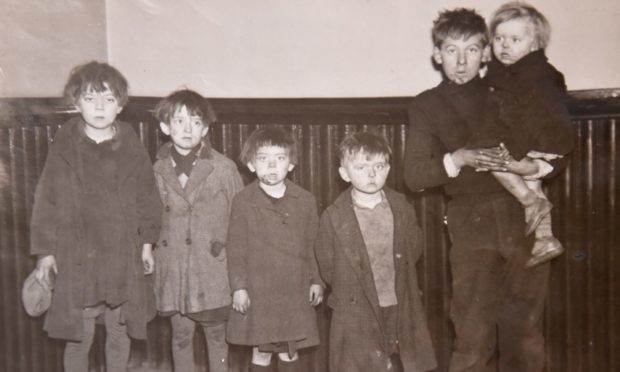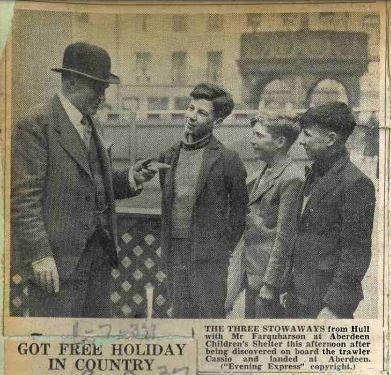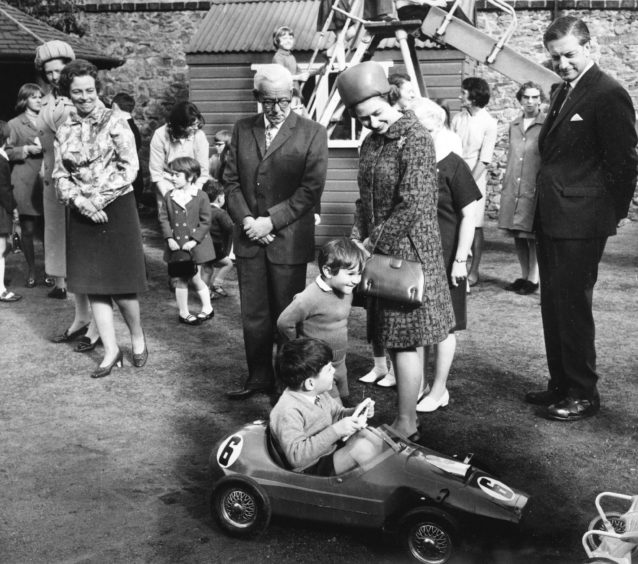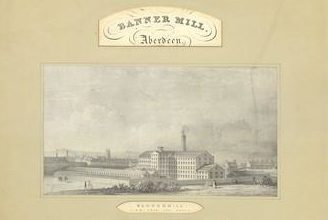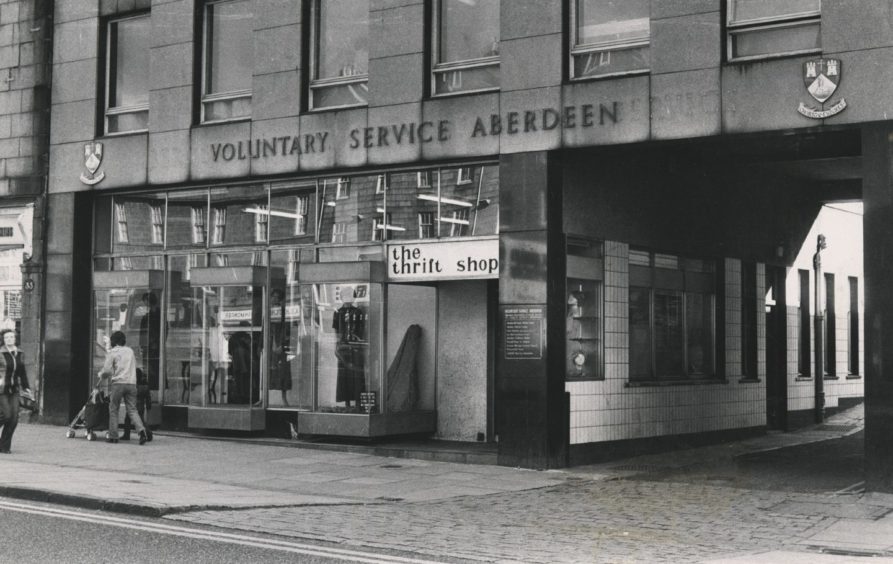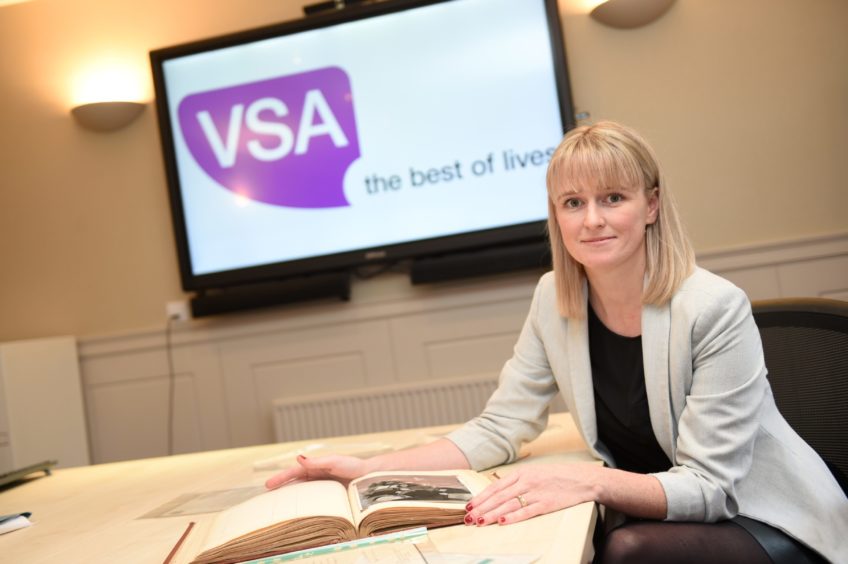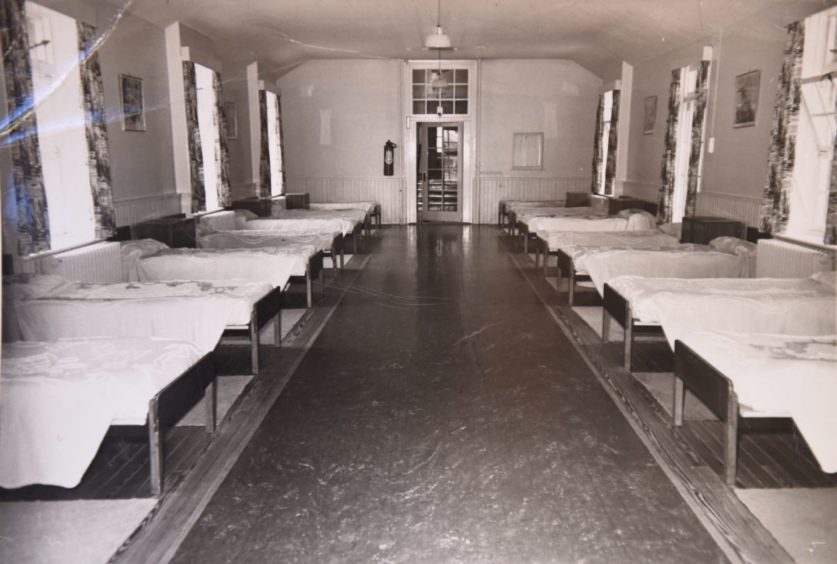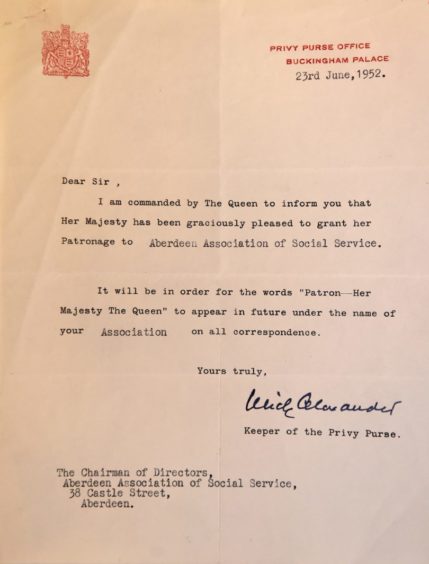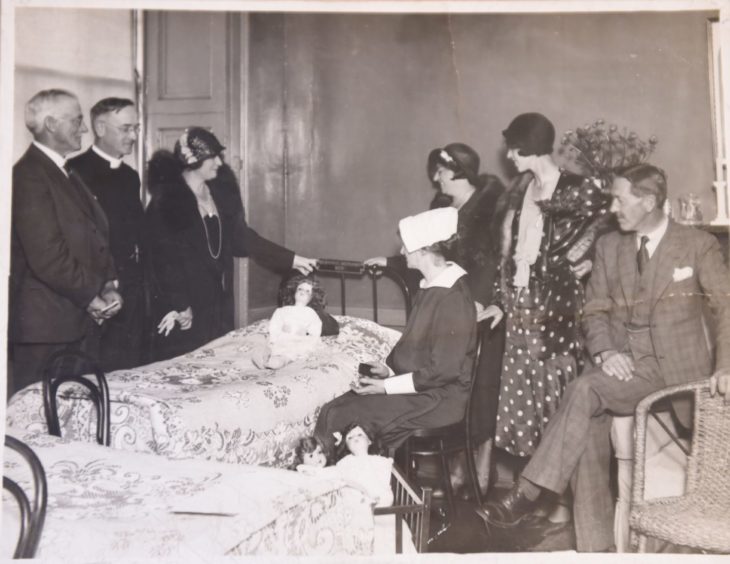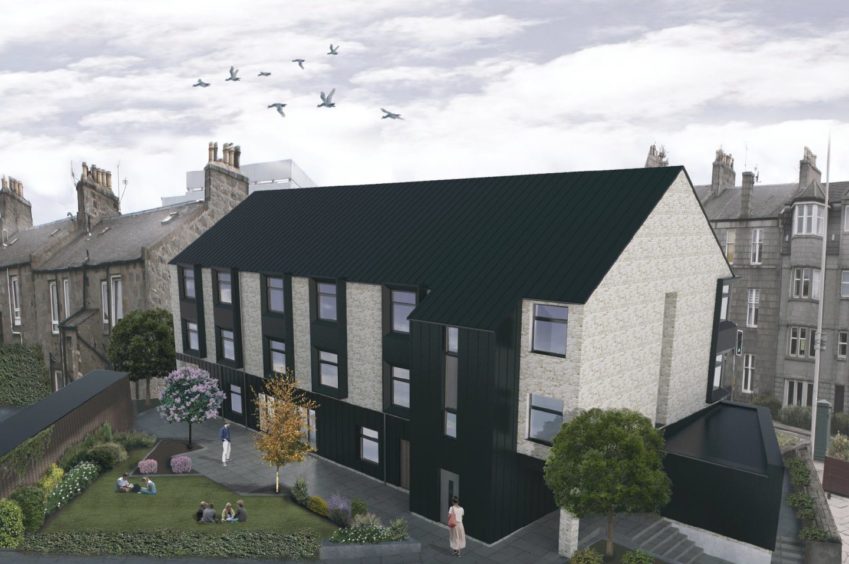Dreams of a life at sea were shattered for three young stowaways when the boys from Hull, hungry and seasick, emerged from their hiding place on a trawler – and ended up being looked after in the Aberdeen Children’s Shelter.
The dramatic tale unfolded way back in 1937, but has come to light again as VSA opens its archives to celebrate a remarkable 150 year history of providing care and support for the people of Aberdeen.
The 83-year-old yarn of the seasick stowaways is just one of 150 stories from the annals of the social care charity, being compiled by arts and heritage consultant Wendy Smithers to mark this major milestone year.
Wendy said: “These three boys from Hull decided they wanted a life at sea, so they stowed away. They got into where the nets were stored and hid themselves, but two of them were really seasick. They didn’t have any food or water and hadn’t really thought it through so they crawled out.”
Iceland
The trawler, Casio, had been 20 hours at sea en route to Iceland and was off the coast of Aberdeen when the boys emerged. The captain wired a message to Hull to say the lads were safe. Hull authorities contacted the police and coastguard in Aberdeen and a boat was sent to meet the trawler.
At that time, the VSA – under its original title of the Aberdeen Association for Improving the Condition of the Poor – ran the city’s Children’s Shelter. It looked after children while their mums were ill or in hospital. It was also the first point of call for any child who found themselves alone in the city.
Wendy said: “So there’s a picture in the paper of the head of the association, James Farquharson at that time, who met them on the quayside and put them in the children’s shelter until one of their parents could travel up and get them. They set out for Iceland but made it as far as Aberdeen.”
Wendy said her dive through the archives of VSA – which provides practical, social and mental well-being support for the city’s vulnerable – has been fascinating, moving and uplifting, revealing astonishing human interest stories.
Good neighbour
She said: “That’s where heritage comes to life. Whatever we go through as human beings it’s generally happened to somebody before us. It really shows how people have gone through so much, but the common theme that was coming out was that Aberdonians are very generous and look after their own.
“There are lots of stories of people with nothing looking after their neighbours with less than them. People volunteering, people giving things they didn’t need, whether its clothes or boots to others that needed it. It’s interesting that the history of the charity is about people.”
One of the most remarkable feats of the association came about in 1904, when the Bannermill textile factory, facing difficult economic conditions, simply shut its doors. Some 400 local people, mostly women and girls, suddenly faced no income and the real threat of destitution.
Wendy said: “The association set up rooms in the Gallowgate where they could come and be retrained, but also have meals and also get help in finding other jobs. They would be found somewhere to sleep if their loss of income meant they were going to lose their homes. It was basically, whatever you need we are here for you until you get another job and retrain.
“It was so effective within six weeks it was shut down again because everyone had found another job and been retrained.”
Wendy said her research saw her working through archives held by the city council, the University of Aberdeen and at the VSA’s own Castlegate headquarters.
She said: “That was fascinating. We found things like sonnets written by previous members of staff or volunteers, we found physical items such as old boxes people were asked to put their coins in, lots of old photographs.
“There were some amazing things in there.”
Guiding principal
What struck Wendy during her research – which will see her 150 stories compiled into a fundraising book for the VSA, as well as some being released though social media – was the way the charity offered long-term and practical help throughout its history.
“Rather than just saying ‘here’s some money for food today’, they would say actually, if you got a lodger that would sort out your finances. We’re going to help you find a lodger, we are going to buy a bed and decorate the spare room. Suddenly that family has gone from being unable to support themselves to having that steady income. It turns their lives around.
“What’s most moving is that humanity, people helping other people.”
That guiding principal has been at the heart of VSA since the day it was founded on March 10 1870 as the Aberdeen Association for Improving the Condition of the Poor, said Jennifer Mitchell, the charity’s director of external relations.
She said: “It started with two previous lord provosts, Provost Nicol and Provost Leslie, who wanted to bring a model of care to the city to support people living in poverty. At the time, the two provosts looked at models of care in New York City which at that moment in time was quite innovative. They looked Germany, Liverpool and London to bring back a model of care for the condition of the poor to support people in Aberdeen who really needed help.”
Poor conditions
Conditions for the poor in Aberdeen would have been tough in that era with no ready access to the basics of modern life we take for granted, like lighting and heating.
Jennifer said: “In the really poor and impoverished areas of Aberdeen disease was high, heating was an issue, which was one of the reasons we had a coal fund on the go. It would have been really harsh living conditions. I couldn’t imagine what it would have been like for people trying to struggle here.”
Its primary aim was to support women and children living in poverty and the city great and good were asked to join as members, their subscriptions being used to help drive the charity work forward. They flocked to the new association.
Jennifer said: “Our research has shown that Aberdeen back in 1870 was decades ahead of everywhere else across the UK when it came to philanthropy and was really leading the way. The people of Aberdeen have very generous hearts and really did want to help their neighbours and others in less fortunate positions than themselves.
“Aberdonians gave quite passionately with their hearts, but also with their heads. There was a real business-like approach to philanthropy. They didn’t just give because they felt a personal connection.
“They wanted to make sure the charity they were giving to, the Aberdeen Association for the Condition of the Poor, had a sustainable business model behind them. It wasn’t just that you give £10 today are you going to come back after that same £10 tomorrow to sustain a service, for example.”
Founding patron
The charity’s huge success also saw it secure the highest profile person of Victorian society – Queen Victoria herself.
Jennifer said: “We are one of the very few charities who can say that since the moment we were founded we have had a strong friendship with the Royal Household. So back in 1870 Queen Victoria was our founding patron and every reigning monarch since has been patron of VSA. We feel incredibly honoured that Aberdeen and Aberdeenshire and its people hold such a warm place in the monarch’s heart.”
Queen Elizabeth became patron in June 1952, when the charity was then known as the Aberdeen Association of Social Service. It became Voluntary Service Aberdeen in 1979, then VSA in 2006.
In its infancy, the association supported a few hundred people. Today it is at the heart of the Aberdeen community, delivering 40 different services, supporting more than 20,000 people each year and offering 3.1 million hours of care.
Jennifer said: “At VSA we support a person’s practical, social and mental well-being, supporting really vulnerable people who are perhaps living with complex learning difficulties, additional support needs, living in loneliness and isolation today, still living in poverty or perhaps are living with addiction so on their journey to recovery from drugs and alcohol.
“We are very much a very unique charity in that we provide full spectrum social care services. It is from the moment of a baby taking their first breath, right through to an older person taking their dying breath.”
There is, of course, much for VSA to celebrate – but the coronavirus pandemic has put on hold the planned celebrations, which would have included a series of vintage tea parties, including one hosted by the charity’s president, Lord Provost Barney Crockett.
There was also to be a glittering ball at Balmoral Castle, held with the permission of the Queen.
Pause button
A tangible legacy for the 150th year will be the VSA mental well-being support centre, Abergeldie House, being built on Holburn Street. It will house 20 adults on their journey to recovery, with outreach for up to 40 people in the community. A £3.2 million campaign for the centre was launched a couple of years ago and VSA is now on the last big push to raise the final £500,000 needed for the centre. The pandemic prevented it from opening back in August, but Jennifer hopes it will be completed by spring next year.
She added the planned celebrations will all still take place, with the charity pressing the pause button, as opposed to the cancel switch.
“This will all still happen and we aim to restart our whole celebration year, all being well, from March 10 2021. We will absolutely reset the year and look to do a 150 plus one.”
And that will include looking forward to the next 150 years of VSA, constantly learning, constantly pivoting its service to where the need is.
“We are very much the charity that is there to catch people when they fall, to pick them back up and let them know they are loved and not alone.
“I’m fairly confident Provost Nicol and Provost Leslie would look at this now and be really proud of the foundations they laid for a charity that has changed tens of thousands of Aberdonian’s lives across decades.”
